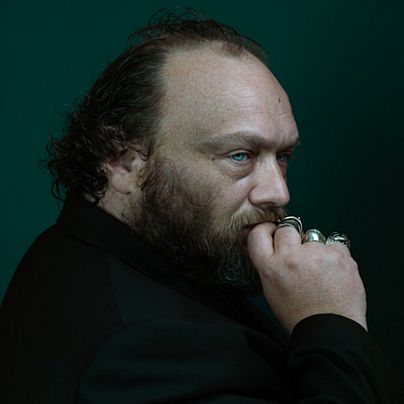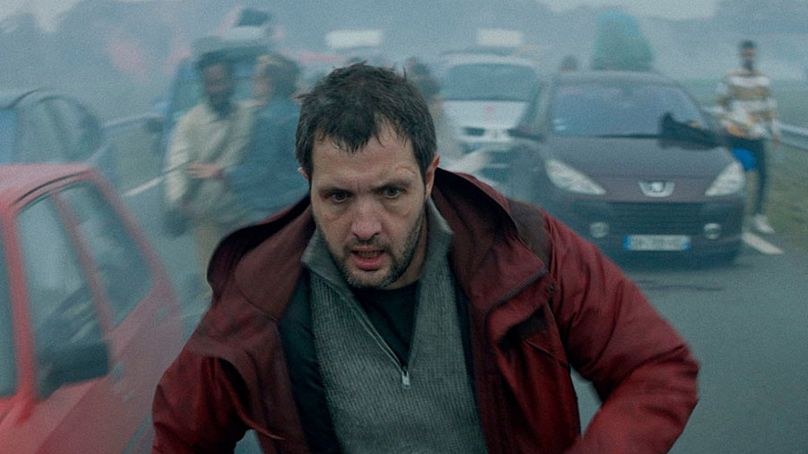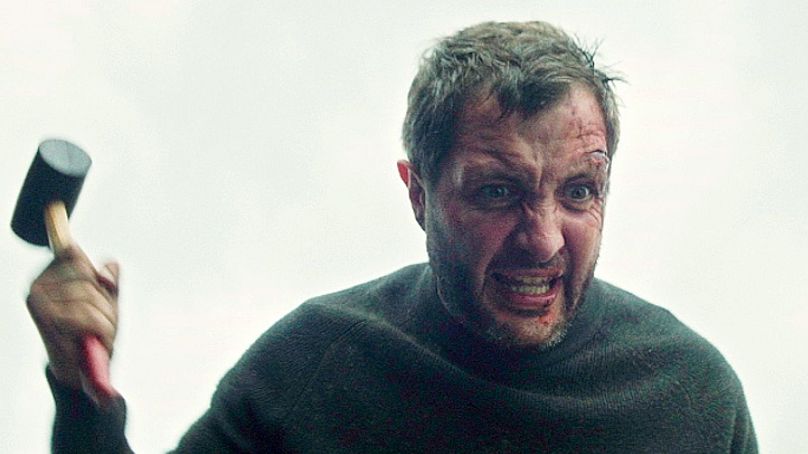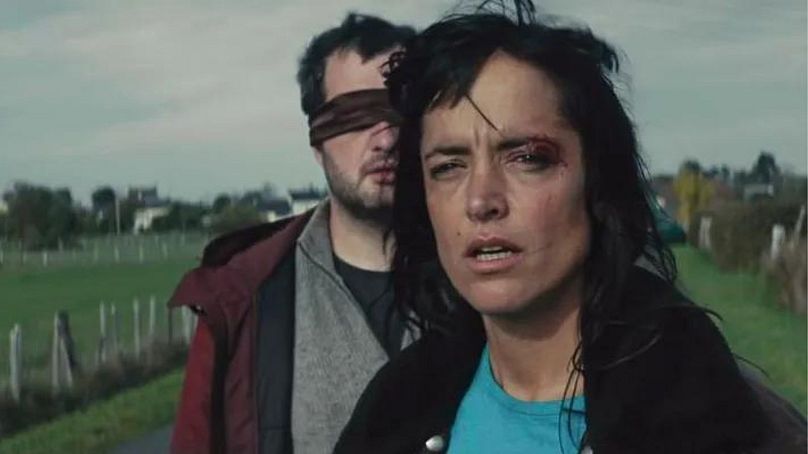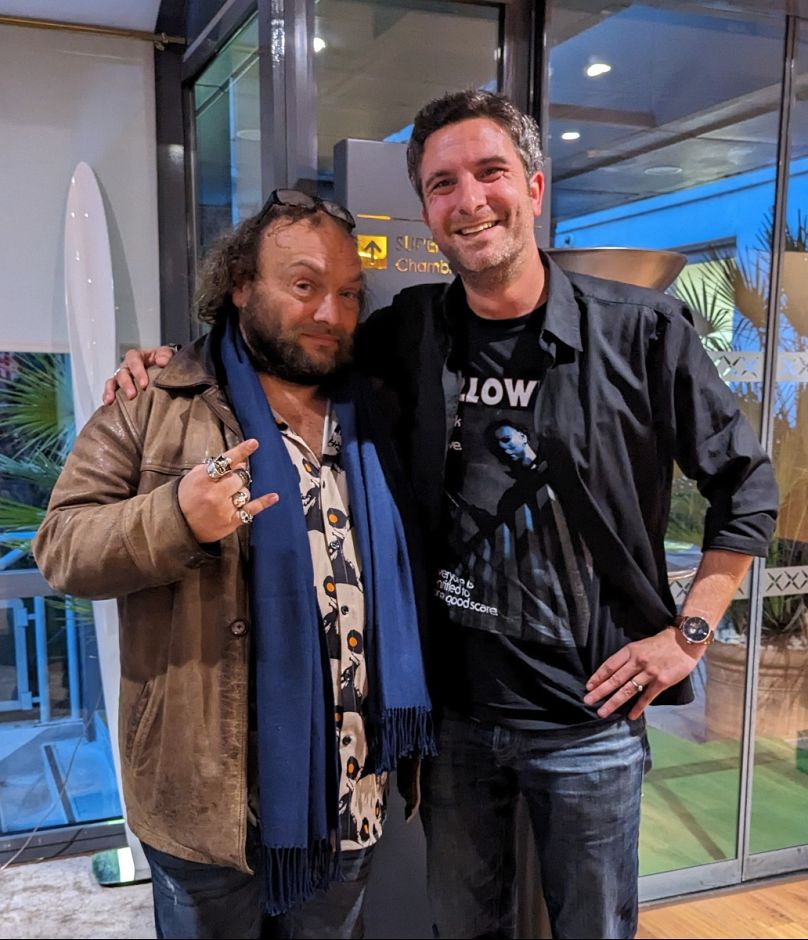'Vincent Doit Mourir' ('Vincent Must Die') is out in cinemas - and stands as one of this year's best French films. Euronews Culture sits down with the director to discuss his impressive debut feature.
Having premiered in Cannes this year, before doing the festival rounds at Fantasia Festival and the BFI London Film Festival, Stéphan Castang's Vincent Doit Mourir (Vincent Must Die) is now out in cinemas.
 ADVERTISEMENT
ADVERTISEMENT
 ADVERTISEMENT
ADVERTISEMENT
It’s a masterful genre mash-up which doubles up as a potent modern parable, one which sees a docile everyman faced with the reality that everyone inexplicably wants to kill him.
It’s our Film of the Week – read the full review here – and stands as one of French cinema’s strongest offerings of 2023.
Euronews Culture sat down with director Stéphan Castang, to talk about his debut feature and the importance of absurdity in a frequently all-too-violent world.
Euronews Culture: What resonated with you in Mathieu Naert's script?
Stéphan Castang: It was actually the film's producers who suggested the script to me. As I'm a polite person, I thought I'd read it and then say no, because I tend to write what I shoot and vice versa. And I liked the main idea of Mathieu's screenplay, a story about the gaze. More than just clever, I found the idea very concrete. It resonated with things that interested me - it made it possible to talk about that gaze without psychology. For me, it was a purely cinematographic idea that raises the question of the gaze. It starts at nursery school and goes all the way through to the retirement home!
Every time there are stories of conflict, that's it. “How did you look at me?" "That person looked at me funny”. So I really liked that idea. The idea of mixing genres was already there, but it was just a premise, and I could see that it was something imagined by a neurotic. And as I'm quite neurotic myself, I thought I could inject my own neuroses into it.
So we went on to write the script, and to push things a bit further than Mathieu had suggested, starting from this premise and introducing something that's important to me: humour. I like absurd humour. So that's what we focused on.
It's a film that's at the crossroads of several genres, something mirrored in the film's structure. It starts out as a paranoid thriller. Then, we go into slasher territory, followed by a virus / zombie film that references Romero. That then crescendos into an apocalyptic survival film...
That's it, but I didn't ask myself those questions. Beforehand, I knew that one of the pitfalls of the film would be to go from an action scene to a comedy scene... I knew I didn't want that. On the contrary, as the film progressed, everything had to pile up and form a certain tone. What tone? I didn't know. It was the tone that, in any case, would be specific to the film. But for me, the important thing was that if there was one genre that predominated - it's the love story.
Yes, I wanted to ask you about that, because it's quite a touching love story when it comes down to it. The last scene of the film, without spoiling it for readers, is emotionally resonant. And you don't expect it. But in fact, you could guess it was coming, as halfway through the film, Vincent Must Die becomes quite romantic.
Absolutely. It's as much the meeting of two characters as it is the intersection of two films, with abused bodies. We don't see Margaux's film, as we follow Vincent, but we can see that it’s also a story of hardship for her. She is also hunted down and hassled. And these two characters cross paths and have to find a solution together. It's a love story in a violent world. So for me, it's close to a romantic comedy, but without all the clichés that go with it - without the best friend, without the love scene with the saxophonist in the wardrobe... Those things make me not believe in it. But on the other hand, the need to love, to hug each other - that can be an escape, or at least a possible moment of respite from the shitshow of our lives. Provided we're not - and this is what the last scene means to me - blind to our own violence.
Different references throughout the film will resonate differently with each audience member. For me, I really enjoyed the nods to Romero and John Carpenter, particularly with the soundtrack by John Kaced. What were your influences for this film?
They’re numerous. Of course, there was Carpenter, who is a bit of a guiding figure, but more the Carpenter of They Live. Because there's a kind of irony in that, as he explains that capitalism comes from aliens.... Which is, a priori, the most logical explanation. There was Romero, of course, so good call on that one! The Romero of The Crazies ... And also Buñuel - hence that first scene where a secondary character recounts a dream. I also had in mind burlesque and Buster Keaton.
Then one thing that's very inspiring for me - more than the cinema - is the team I'm going to work with. My background is in theatre, and I wanted to make a film with a troupe. With a collective approach and without that sort of hierarchical thing that can happen in cinema, which really annoys me - whether it's in cinema or elsewhere. I like things to be shared, discussed and reflected on, and for there to be a collective energy in all that. So whether it's cinematographer Manuel Dacosse, the composer John Kaced who did the music for all my short films. Whether it's my fight coordinators or the costume department... All these people are inspiring. It's the energy of a group that, for eight weeks and with the preparation time beforehand, brought this project to fruition. I think there was a great deal of jubilation in making the film - a great deal of pleasure in mistreating bodies for eight weeks! And I think that this jubilation, which despite being an invisible thing, hopefully transpires. I hope the audience also feels it.
You mentioned that you enjoy absurdist humour, and I got some Pythonesque vibes from the film, particularly in the first half.
Absurdity and humour is necessary. In my short films, I've explored many different things. But if there's one common denominator, it's humour, and a humour that tries not to be compulsory. You don't have to laugh. I asked the actors - I always ask the actors - never to act for the comedy, but to be aware of the situation and that the more serious they are, the funnier it's going to be. If you're a bit perverse, it can be very funny. If you're not perverse... Well, that's a shame in and of itself... You can take the film more at face value. And that's fine. It doesn't prevent you from experiencing the film. I'd say that the humour is a little extra, which suddenly allows you to take a step back from the violence on offer. And I think that's healthy. It's always good to laugh and that's why I love the absurd. It allows you to say serious things without making a mockery of what you're trying to say.
One thing that struck me was your approach to violence. We see it physically, we feel it on social networks, we hear it on the radio too. But above all, the violence in the film is quite banal - ordinary, even. And as a spectator, you believe it. How did you go about it?
It was more or less exactly what you've just said! How was it to be filmed? That was one of my first questions. How do you film violence? Especially as over the last thirty years or so, there's been a kind of standard that's imposed itself, which shows violence as quite fun. It’s probably influenced by Tarantino and Hong Kong cinema. Things that I like a lot, but which have imposed a way of filming, with extremely virtuoso fights, with an aerial, choreographic camera. That can give us that fight sequence in Kingsman, for example. And it's certainly exhilarating, but at a certain point, I don't even know I'm watching! And that's one of the central questions of the film, with regards to the gaze of the other: What are we watching? It was something I suggested to my DP and my stunt manager. I didn't want the violence to be fun. On the contrary, I wanted it to be dirty. I'm not at all a brawler, but I did end up, quite involuntarily, in a bar fight once – and it's anything but smooth and choreographed! It's dirty, and there's not that verve you see in the movies. People are pulling at each other's hair, grabbing at each other's clothes, scratching and biting. And because we're dealing with ordinary bodies in Vincent Must Die - a postman, a lady at the wheel of her car...
Kids too...
Yes, and kids are even worse because children's bodies are taboo. You don't want to see them fight. One of the first things I wanted was for them to hit each other like kids would. What's more, I don't particularly like children! I thought there was an inherent violence to those scenes, because there's a double reading: Vincent hits the children and he's right to, because he's being attacked and defending himself. But, at the same time, if you look at it coldly, you see a guy who is beating up children! I like it when the viewer thinks, ‘Yes, he's right to do it. But in fact, no, there's something not quite right about this...’ And so, in the way we filmed, in the framing and in the way we set up the stunts, we had to create something that was clumsy, awkward and dirty. Right up to the fighting climax, which is of course the fight in the septic tank.
Comedically, from the first moment that is mentioned, you know it’s going to end in shit...
We want to see them in that shit, that metaphor for what the characters are going through at that moment!
Of course, there's no definitive reading of the film, but it still feels very timely, a post-Covid film. What with the confinement and very modern solitude experienced by the characters... It feels like a sort of parable about the collapse of the social contract. But if there's a message about modern anxiety, you don't shove it in the audience’s faces.
Yes, it's a bit of everything. It’s about contemporary violence in all its forms. When Vincent is asked to work remotely because he makes the atmosphere shit by getting beaten up - that's another form of violence. When he says to the intern: 'Why didn't you bring me my coffee?', that's violence. It’s a very contemporary thing, but it's been around since the beginning of times. Our favourite sport is getting into each other's faces and beating the shit out of each other. If you look at our history, there have been fewer moments of peace than there have been of violence. In the West, we’ve had the illusion those things happen elsewhere. But it's caught up with us. And for me, what the film really tells me is that we mustn't lose hope - but it's still always something of a miracle that we don't all end up beating seven shades out of each other all the time! Everything is designed for that to happen. That's why it's important to me that I don't have a message. Films with messages and lessons to give irritate me. There are religions for that!
A bit like that quote from Samuel Goldwyn or Howard Hawks – I never know which one - "If you’ve got a message, send it by Western Union."
That's it. What I like about cinema is that it moves you, that it gives someone another experience of the present. And I also really wanted to appeal to teenagers. I often said that on set - that if a teenager accidentally gets lost in the cinema, they shouldn't think that this film isn't for them and doesn’t see them. I wanted this mix of genres, this way of telling a story of love in a brutal world to be something that people could relate to. Even if you don't have sympathetic characters to begin with.
It’s true, because Vincent's first line is, as you say, a form of attack on the intern. At first you think he's either a bully or a bit clumsy because he made a joke that didn't land...
At best he's gauche, at worst he's an arsehole. And I like the fact that, at the start, we have a character for whom we don't necessarily have empathy. Empathy comes gradually and that's why this isn't a film with a message at all. It's not about the question of ‘why?’. The question of the film is ‘how?’. How you adapt, and the question of 'how?' is, in my opinion – and once again, I don't have any lessons to give - more cinematographic than the ‘why?’.
It's impossible not to talk about Karim Leklou, who seems like a fairly standard everyman at first, but we gradually discover this very layered character. With your background in theatre, is it easier for you to work with actors?
Did it give me an advantage? Quite honestly, I don't know. In any case, it gave me the opportunity to meet the actors we see in the film, that's for sure. The other thing that's certain is that I avoid repeating the bullshit that was said to me as an actor. Directors can sometimes say the most outrageous things. I've kept those, and I've said to myself that I would never say that to an actor or actress.
Like what?
‘Have fun.’ That's the worst thing. It's like saying to children, "Have fun now", and you're sure they're not going to do anything. We're living in an age of injunction, and the fact that times are a bit sad is hardly surprising! It should be about how you create an atmosphere, an ambience conducive to play - and that can't be decreed. Before I started playing, when someone said 'have fun', I wanted to smash the guy's face in!
Otherwise, there was no audition for Karim. That's something I don't believe in. Auditions are always very intimidating, and it's always complicated for me. I'd rather have a drink with someone, meet them, have a chat, but I'm not in a position to feel whether someone who's been working for 1 hour is the right person. I'd seen Karim play, and I think he's one of the most interesting and important actors in France. You could have imagined an actor for this role who was more obvious, more cut out for the fight scenes. But that didn't interest me at all. For me, Karim was the ideal actor because we needed someone with a dual personality. That's what you were saying - in other words, he's a bit of an everyman, but he's also very individual. He's genuinely gentle, but he can also wear a mask of brutality. I wanted us to explore that together, something almost burlesque, with an awkward body that tries to adapt, and with a face that's a bit impassive. Like Buster Keaton - you're going to get on the train and not wonder why. You're going to get on anyway.
The film premiered at Cannes, then went to the Fantasia Film Festival, LFF... Were there any reactions to the film that surprised you, or that you hadn't anticipated?
It's always surprising. The film is having a moment at both genre film festivals and more mainstream festivals. And genre film festivals are very special. I've discovered that the audiences are very responsive. I really like that, because it's a bit reminiscent of the fairground aspect of cinema in the early days. They're not at all polite. They applaud during scenes, and boo if they don't like it. And I think it's extremely good to have an audience like that, which reacts, which has its own codes, which has its own gimmicks depending on the festival. That was a discovery. What's quite astonishing, on the other hand, is that while young people tend to like the film, and there's a certain category of 60 to 70-year-olds who have trouble with the film. Not all of them, mind you, but definitely a small percentage, who would like a message...
An explanation, perhaps?
Yes, an explanation, and they think it’s gratuitous violence. And that's quite astonishing. I didn't expect that. Nor those who even had some rather violent reactions. Some said it's just a display of debauchery and violence. Which is quite funny in its own way!
Vincent Must Die is in European cinemas now. (This interview was translated from French.)











